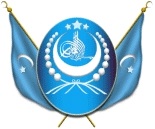Open letter to Ursula Gauthier & Courageous Journalists Reporting on China
For immediate release
09 January 2016
Contact: World Uyghur Congress www.uyghurcongress.org
0049 (0) 89 5432 1999 or [email protected]
To the courageous journalists in and out of China,
Reflecting on all that has transpired in relation to French journalist, Ms. Ursula Gauthier, the World Uyghur Congress would like to offer its support to all journalists who have had the courage and resilience to uncover truth and to criticise the Chinese government’s heavy handed policies towards the Uyghur community.
We were furious to hear that Ms. Gauthier was denied renewal of her press credentials, effectively expelling her from the country before December 31st. Although we are not altogether surprised at the result, keeping in mind the serious crackdown on the dissemination of information in China and regarding East Turkestan in particular, it is troubling that intimidation and censorship persists so strongly.
The article, written originally for the French news magazine L’Obs, would be considered a valuable piece of reporting by the standard of any reputable journalist. The piece explores the relationship the Uyghur community has with the state and looks to scrutinize China’s response to the Paris attacks and the dubious links that the Chinese government attempted to make with violence in East Turkestan.
On the day following the Paris attacks, Chinese state media reported that 28 people were killed in a police operation aimed at those responsible for an attack on a coal mine in Bay county that left many dead. The timing of such an announcement registered as suspicious by many rights groups and suggested that Chinese authorities were looking to capitalize on global terrorist fears. The initial attack, first reported by Radio Free Asia, took place on September 18th, yet it was not until November 20th that the regional government officially recognized the incident.
Immediate links were drawn between the attacks in Bay county and ‘international terror networks’, despite no evidence for such claims. The response was clearly meant to galvanize international and domestic support for China’s own supposed war against terror.
The issue that was stressed by Gauthier was that family members of the attackers, including a number of women and children, were reportedly killed during the police operation, despite this information not being disclosed by Chinese authorities.
Gauthier presents a fair and accurate counter-narrative to that which the Chinese authorities oft-repeats whenever violence erupts in the region, as she explains that the radicalization of young people has been driven by desperation and “ruthless repression that crushes all aspects of Uyghur life”. Gauthier does not justify violence in any form, but attempts to understand the context in which it has arisen.
Such has been the Chinese response to critical media coverage over the past few years in particular. The response indicates the limits of toleration that the Chinese government has developed in relation to dissent and is meant to send a strong signal to the fate of those pursuing the same truths.
This kind of treatment, though not altogether unknown, has been expanding in recent years. Uyghur academic, Ilham Tohti, was arraigned on separatist charges in response to little more than his work on exposing the unfortunate realities that Uyghurs face in China and was sentenced to life in prison in September, 2014. Rather than mere criticism of state policy, Tohti looked to understand and to mitigate some of these deep-seated issues through dialogue and cooperation. Under Xi Jinping, the line that delineates how far one may go in discussing state policy has been redrawn.
WUC president, Ms. Rebiya Kadeer, wishing to speak directly to Ms. Gauthier had this to say:
As someone who has experienced China’s education system as well as harsh censor from the state, I could relate fully to the experience of Ms. Gauthier. Under so much pressure and opposition, she might feel extreme disappointment, but I would send her following message loud and clear: I have been through worse and I know how it feels to be severely criticized as to start doubting my own actions. But I can tell you this, stay strong and committed to the truth, it might appear to lose for some time, but will not be all the time. Every human souls yearns for truth, every wrong action in and of itself a stark reminder for each of us to stay with the truth. We need more of people like you to face the challenges of today. We need to have more dialogue across different perspectives, ideologies and ethnic lines. Last but not the least, I wish the best for you, your family and your organization.
The rest of the journalistic community reporting on China must stand firm to their principles. It is in places where opacity and censorship reign where fair and reliable information is most needed and valued. Accountability is nearly impossible when the people are deprived of the ability to access information or to engage with their government.
It is tremendously important that the international community is made aware of the deteriorating situation in East Turkestan. The Uyghur people have faced tremendous hardships for decades, but the issue has been largely over-looked by the media – likely a result of the lack of access to the region for independent media. It has also proved difficult to illustrate crucial nuance to a Western audience, particularly when Chinese state media remains the primary source for information and has few issues framing the situation in terms of terrorism and counter-terrorism.
We would therefore like to thank those journalists that attempt to cover the issue so succinctly and continue to push for more openness rather than less, more truth rather than disinformation. It is only through these actions that the voice of truth and justice can eventually shine through.


